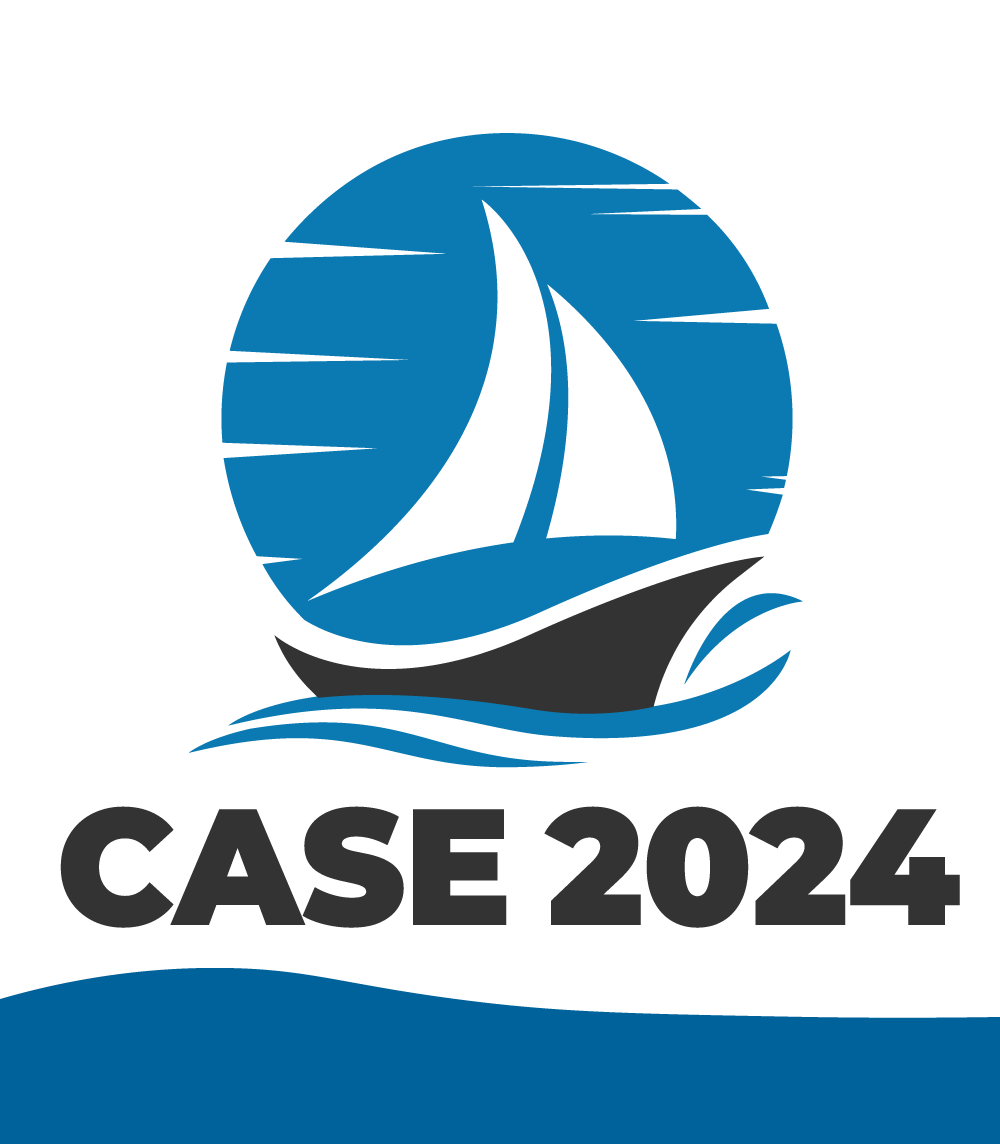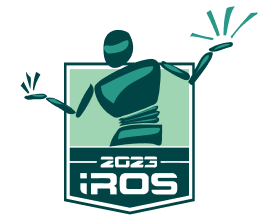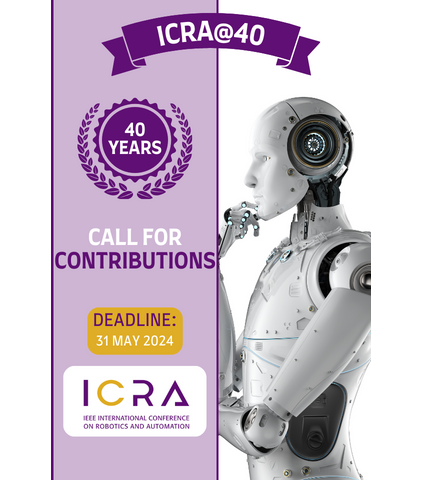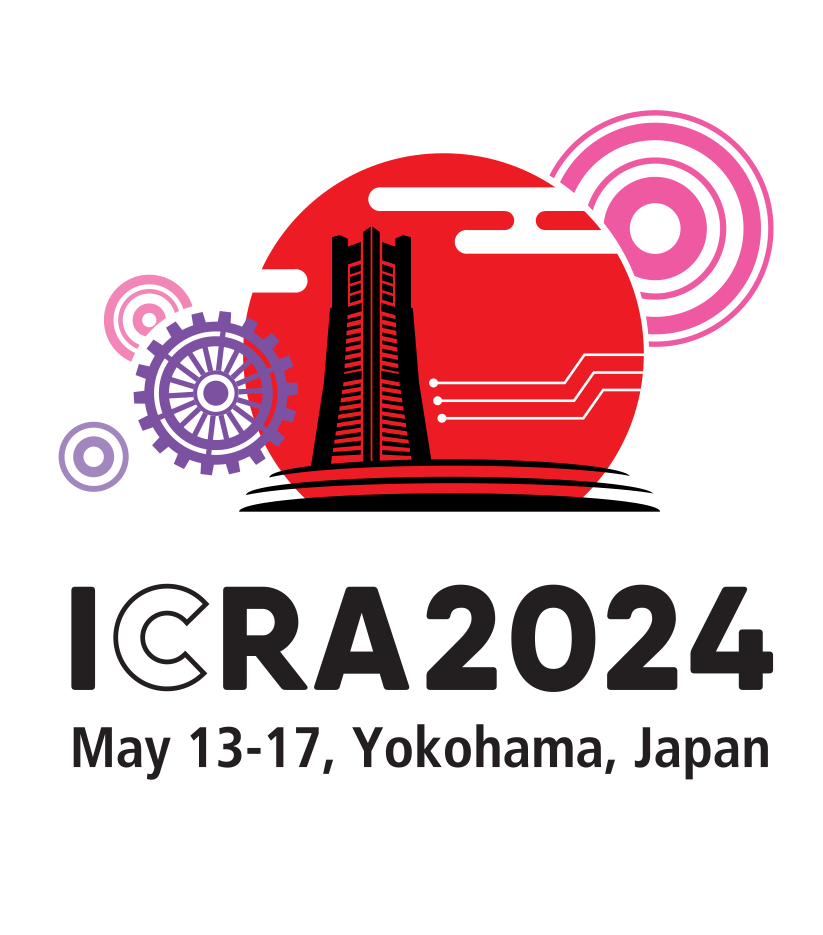Latest News
• To be eligible for application or nomination, candidates must:
• Be engineers, scientists, educators, technical executives, or originators in IEEE-designated fields
• Have experience reflecting professional maturity
• Have been in professional practice for at least ten years (with some credit for certain degrees)
• Show significant performance over a period of at least five of their years in professional practice
Nominees for IEEE Fellow must hold the grade of Senior Member or Life Senior Member in order to qualify for elevation to Fellow status.
| Turki Abdalla Iraq Section University of Basrah |
Yasar Ayaz Islamabad Section National University of Sciences and Technology (NUST) |
Alexandre Bernardino Portugal Section Instituto Superior Técnico |
| Dominik Bösl Germany Section KUKA AG |
Girish Chowdhary Central Illinois Section University of Illinois at Urbana–Champaign |
Francisco Chumbiauca Palouse Section Schweitzer Engineering Laboratories (SEL) |
| Prithviraj Dasgupta Nebraska Section University of Nebraska |
Elena De Momi Italy Section Politecnico di Milano |
Dimos Dimarogonas Sweden Section KTH Royal Institute of Technology |
| John Dolan Pittsburgh Section Carnegie Mellon University |
Stanley Frady Western North Carolina Section Eaton |
Juan Garcia Spain Section University of Alcalá |
| David Gomez-Gutierrez Guadalajara Section Intel Corporation |
Jeffrey Krichmar Orange County Section University of California, Irvine |
Venkat Krovi Piedmont Section Clemson University |
| Jinoh Lee Italy Section Istituto Italiano di Tecnologia |
Ming-Yih Lee Taipei Section Chang Gung University |
Xiongbiao Luo London Section The University of Western Ontario |
| Alessandro Macchelli Italy Section Università di Bologna |
Alessandro Marino Italy Section Università di Salerno |
Arifuddin Mohammed Hyderabad Section Muffakham Jah College of Engineering & Technology |
| Katsumi Moriwaki Nagoya Section Daido University |
Christian Ott Germany Section |
Mike Paulin New Zealand South Section University of Otago |
| Daniel Sangines Florida West Coast Section |
Mohan Satyaranjan Bangalore Section |
Yajing Shen Hong Kong Section University of Hong Kong |
| Jie Song Beijing Section Peking University |
Ganesh Subramanian Madras Section Panimalar Institute of Technology |
Yi Sun Southeastern Michigan Section FANUC America Corporation |
| Lawrence Tessari Southeastern Michigan Section |
Emir Vela Peru Section Universidad Peruana Cayetano Heredia |
Huihui Wang Jacksonville Section Jacksonville University |
| Zhan Yang Nanjing Section Soochow University |
Da-Jeng Yao Taipei Section National Tsing Hua University |
Xuebo Zhang Beijing Section Nankai Univeristy |
| Yu Zheng Southeastern Michigan Section University of Michigan-Dearborn |
Each year, the IEEE Robotics & Automation Society offers financial support for three Technical Education Programs (RAS-TEP), also known as "Summer Schools." In an effort to bring RAS closer to its membership, three programs are held each year: one in the Americas, one in Europe/MiddleEast/Africa, and one in Asia/Pacific Rim.
The RAS-TEP program is jointly run by the RAS Member Activities Board (MAB) and the RAS Technical Activities Board (TAB). These Boards will review proposals and select the TEP programs each year. The program sponsors up to three schools per year around the world. Each of the three Technical Education Programs (Summer Schools) will receive up to USD$25,000.00 in funding from RAS. Funding should be used to reduce the event cost for RAS Student Members, and to assist in securing high quality instructors.
The review of TEP proposals is based on assessments from two different viewpoints, the first one with respect to the general structure, including organizational matters and budget, and the second one with respect to the technical content. One or more relevant RAS Technical Committees (TCs) must endorse all submitted proposals. Current TCs are listed at: www.ieee-ras.org/technical-committees.
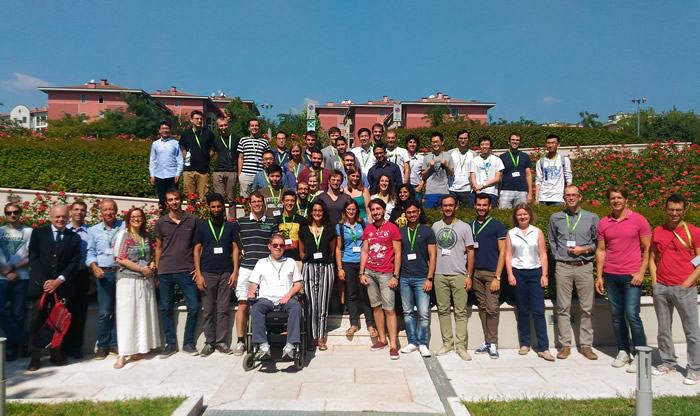
PROPOSAL SUBMISSION
Technical Education Program Proposal - online proposal form
IMPORTANT DATES
Deadlines for the submission of 2019 proposals: 1 May 2018 Deadline Extended to 14 May 2018
Decision: ICRA 2018
Notification: July 2018
The National Science Foundation video focuses on the research of computer scientist and roboticist Robin Murphy of Texas A&M University. Robin is an IEEE Fellow, and past Officer of the IEEE Robotics & Automation Society.
Details of this work: If you haven't needed the services of the Emergency Integrated Lifesaving Lanyard, or EMILY, count yourself lucky. EMILY is called into action by lifeguards and emergency response teams around the world for water rescues.
With support from the National Science Foundation (NSF), roboticist Robin Murphy of Texas A&M and her colleagues are developing some upgrades to make EMILY and other rescue robots "smarter" for large-scale water rescues, such as coming to the aid of a capsized ferry or water taxi.
Among other things, the researchers are working with tethered drones to create an "eye in the sky" combined with onboard thermal sensing to autonomously navigate EMILY to a cluster of people. Because the drone is tethered, no one must "staff" it during rescue operations and it remains clear of any participating aircraft. (The drone seen in this video was flown as part of a field demonstration approved by the Los Angeles County Fire Department.)
Murphy and her team identified some of the technology challenges during field research in the Mediterranean, where the Greek coast guard used EMILY to rescue hundreds of refugees from the water. Since then, the researchers have tested some of their upgrades for EMILY with both the Italian and U.S. Coast Guards.
The full video is available here: https://youtu.be/VTvTcX0cgUo
The IEEE Robotics and Automation Society membership will elect six new members of the Administrative Committee in 2018, each to serve a three-year term beginning 1 January 2019. The AdCom is the governing body of the Society.
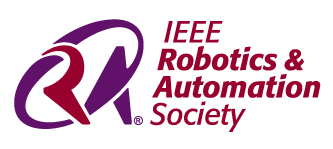
RESPONSIBILITIES OF ADCOM MEMBERS
AdCom members must attend two formal meetings each year, one in conjunction with ICRA and the other usually in October/November in conjunction with another major conference. Each AdCom member is expected to serve on at least two boards and/or committees of the Society.
ELIGIBILITY
Any higher-grade member of the Society is eligible to serve and all higher-grade members plus graduate students may nominate candidates and vote.
TO NOMINATE A CANDIDATE
To nominate a candidate or offer yourself as a candidate, contact the Society at ras@ieee.org by 1 May 2018.
PETITION CANDIDATES
Candidates may also petition to be on the ballot. All persons who, by the deadline, submit petitions with valid signatures and IEEE member numbers with at least 2% of the year-end voting membership will be placed on the ballot. Only original signatures on paper or electronic signatures submitted through the RAS petition website will be accepted. Faxed or emailed signatures are NOT acceptable. Contact the Society at ras@ieee.org to obtain a paper petition form or to set up an electronic petition.
Completed petitions must be received by 1 May 2018 to be placed on the ballot.
SELECTION OF FINAL BALLOT
The Nominations Committee will consider all nominations and petitions and select the candidates to be placed on the ballot.
The IEEE-RAS Technical Committee on Mobile Manipulation and PAL Robotics are organizing the first Mobile Manipulation Hackathon, to take place at IROS 2018 in Madrid, Spain.
Mobile manipulation is gaining traction in recent years, with potential applications in diverse areas including manufacturing, logistics, and healthcare. These applications typically require complex manipulation tasks in both structured and unstructured environments, possibly in cooperation or close interaction with humans. Different fields are involved: perception, navigation, task and path planning, control, error recovery, and human-robot interaction. Nowadays, mobile manipulators are commercial products, ready to open new application fields in academia, research and industry. For instance, PAL Robotics offers TIAGo (http://tiago.pal-robotics.com), a mobile robot platform endowed with a 7 DoF arm, a liftable torso and a pan-tilt head. The Mobile Manipulation Hackathon is an opportunity to showcase your abilities in mobile manipulation tasks at IROS 2018 using this highly capable robotic platform!
Scope
The competition is open to contributions from any domain as long as they can be integrated into a mobile manipulation system. Do you have a software component, e.g. a new planner, a new controller, a new object detection system, we are interested! Or do you have a hardware component, e.g. a new tactile sensor, a new camera, a new gripper, we are interested! Our goal is to help you demonstrate your research live! It is difficult to carry your own robot to a conference, and less and less people are impressed by systems "working" in videos. Therefore, we provide you with a robot, an associated complete ROS-based simulation stack to which you can integrate your software, and one week hands-on support at PAL headquarters before IROS to help you polish your integration into a robust demonstration.
Participation
The Hackathon is open to any academic, research or industrial organization interested in mobile manipulation. Teams of max. 5 people can participate either by proposing and implementing a use case for mobile robotics, or by expanding the capabilities of the robotic platform with hardware modifications (e.g. integrating a new camera, tactile sensor or gripper). Selected teams will get the chance to:
-Get free entrance to IROS 2018 for student members of the team
-Receive up to one week of intensive training and integration support for the Hackathon project in Barcelona (travel/accommodation expenses not included)
-Access to the Tiago mobile robot, and presentation of the developments at the Hackathon area in IROS 2018
Timeline for the Hackathon
Expression of interest: until 30 March 2018
Feedback to the teams: 10 April 2018
Entry submission: 15 June 2018
Announcement of six finalist teams: 1 July 2018
Support in Barcelona: September
IROS competition: 1-4 October 2018
More details can be found on the webpage of the event at http://iros18-mmh.pal-robotics.com
For additional inquiries, please contact the organizers at mobile-manipulation-hackathon-organizers@googlegroups.com
A public forum on the hackathon will be maintained at https://groups.google.com/forum/#!forum/mobile-manipulation-hackathon
Here is an opportunity to demonstrate that your research does not only work in video, but in real life as well!
Organizers
IEEE-RAS TC of Mobile Manipulation:
Maximo A. Roa (German Aerospace Center - DLR)
Mehmet Dogar (University of Leeds)
Nikolaus Correll (University of Colorado at Boulder)
PAL Robotics: Francesco Ferro, Carlos Vivas, Jordi Pages
Local Committee: Antonio Morales (Universidad Jaume I)
The IEEE Robotics and Automation Society - Special Interest Group on Humanitarian Technology (RAS-SIGHT) is engaging the academic and non-academic community to propose viable solutions in R&A to address relevant world problems through several initiatives that include competitions, funding impactful projects, and establishment of collaboration networks with academia, industry, and governments. The mission of RAS-SIGHT is the application of robotics and automation technologies for promoting humanitarian causes around the globe, and to leverage existing and emerging technologies for the benefit of humanity in under-served, under-developed areas in collaboration with existing global communities and organizations.
RAS-SIGHT’s activities broadly fall under Challenges and Projects. While Challenges are intended to advance the state-of-the-art in robotics and automation and provide a platform for researchers and developers to participate in a group setting working towards addressing problems with a humanitarian slant, Projects facilitate communities and associated organizations to work closely with robotics and automation researchers to elevate the quality of life for the residents of communities across the globe. RAS-SIGHT envisions Humanitarian Robotics and Automation Technology Challenges (HRATCs) as an unprecedented opportunity for technologists from around the world to collaborate using their skills and education to benefit humanity. The problems (challenges) are framed with the environmental, cultural, structural, political, socio-economic, and resource constraints so that solutions can be developed, deployed, and sustained.
In this vein, RAS-SIGHT is soliciting proposals that when implemented would improve the quality of life for the beneficiaries. A listing of previously completed and currently running projects are available from http://ieee-ras.org/ras-sight/projects.
Some important points worth noting:
* The problem that you propose to solve should utilize robotics and/or automation technologies
* It is strongly encouraged that the solution be developed and deployed with active involvement from the community or the end-users that it is intended to benefit
* Sustainability beyond the completion of the project will be a key consideration
If you are interested, please submit a 4 page (max.) proposal in the standard IEEE conference format outlining:
- the problem,
- the solution,
- related work, similar initiatives, and how the proposed project will achieve new results than what is currently available,
- proposed partnerships with existing initiatives,
- number of people who would be impacted,
- previous experiences, both in terms of applied research and deployment,
- project development timeline,
- breakdown of anticipated costs, and how the funds would be used to support the project, and
- short biographies of project members (with URLs of respective websites)
We anticipate to fund proposals in the US$2500-$5000 range from all Regions of IEEE. Please note that the awarded funds cannot be used to support wages or salaries of personnel or for supporting theoretical research.
All submissions should be sent to Raj Madhavan, Chair, RAS-SIGHT at <raj.madhavan@ieee.org>.
IMPORTANT DATES
Submission Deadline: 20 April 20 2018
Acceptance Notifications: 5 May 2018
Additional information is available from:
* RAS-SIGHT: http://www.ieee-ras.org/ras-sight
* RAS-SIGHT Publications: http://www.ieee-ras.org/ras-sight/publicationshttp://www.ieee-ras.org/ras-sight/publications
* RAS-SIGHT Projects: http://ieee-ras.org/ras-sight/projectshttp://ieee-ras.org/ras-sight/projects
* IEEE Conference Template: https://www.ieee.org/conferences_events/conferences/publishing/templates.htmlhttps://www.ieee.org/conferences_events/conferences/publishing/templates.html
To include the broader robotics and industrial community, ICRA 2018 will include an Abstract-Only Poster Session (in previous ICRAs called Late Breaking Results). This is an opportunity to describe industrial robotics projects, new robotic technology, or recent research results. One-page abstracts, with a streamlined decision process, will be presented at the conference as posters.
Accepted abstracts will be included in the conference proceedings, but as non-peer-reviewed publication they will not be uploaded to IEEE Xplore. Prospective poster presenters should submit a 1-page extended abstract by 10 March 2018 through the PaperPlaza system.
More details can be found here under the Contribute tab: http://icra2018.org/
You're invited to the IEEE Vision, Innovation, and Challenges Summit and Honors Ceremony
11 May 2018 at The Palace Hotel in San Francisco, CA, USA.
The IEEE Vision, Innovation, and Challenges Summit brings together leading innovators, visionaries, and disruptors in technology to discuss, explore, and uncover what is imminent, what is possible – and what these emerging technologies mean for our future.
The Summit culminates with the IEEE Honors Ceremony, where IEEE's highest awards are presented. These awards are an expression of recognition for outstanding contributions to the advancement of the theory and practice of electrical, electronics, communications, environmental and safety technologies, computer science and engineering, engineering education, as well as the allied branches of engineering and the related arts and sciences and technologies and their application.
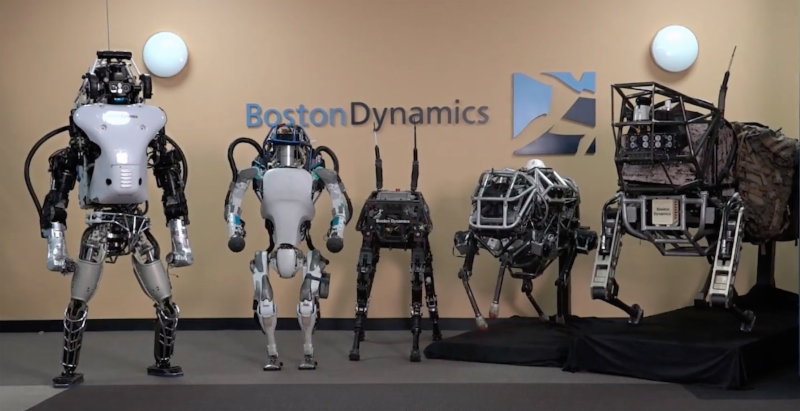
AGENDA SPOTLIGHT
Robots on the Rise: The Future of Robotics and AI
Robots have long captured our imagination, but for decades they’ve been confined to factories and research labs. Now robots are finally making their way into our homes, offices, warehouses, hospitals, and streets. Agile humanoids, social robots, and autonomous vehicles are becoming a reality thanks to recent advances in robotics and AI.
These machines promise to improve our daily lives, but they also raise questions. What jobs should we automate? Can self-driving cars help save lives? Should we be build AI-powered weapons? Where's Rosie the Robot? This panel of robot luminaries will tackle these and other pressing questions on the future of robotics and artificial intelligence.

Moderator: Oussama Khatib, Stanford University
Speakers (L-R): Marc Raibert, co-founder and President of Boston Dynamics Inc.; Cynthia Breazeal, MIT; Dr. Eric Krotkov, Toyota Research Institute
IEEE Awards is happy to provide a 10% discount code to the IEEE Robotics & Automation Society Members! Enter discount code VICSRobotics on the payment screen (in the discount code box) during the registration process.
This event will sell out, so secure the early bird discount by registering now!
Register Now
Congratulations to the IEEE Robotics and Automation Society members recently elevated (October & November 2017) to Senior Member status by the IEEE Admission and Advancement (A&A) Senior Member Review Panel.
To be eligible for application or nomination, candidates must:
• Be engineers, scientists, educators, technical executives, or originators in IEEE-designated fields
• Have experience reflecting professional maturity
• Have been in professional practice for at least ten years (with some credit for certain degrees)
• Show significant performance over a period of at least five of their years in professional practice
Nominees for IEEE Fellow must hold the grade of Senior Member or Life Senior Member in order to qualify for elevation to Fellow status.
| Jake Abbott Utah Section University of Utah |
Turki Abdalla Iraq Section University of Basrah |
Francesco Amigoni Italy Section Polytechnic University of Milan |
| Carlo Alberto Avizzano Italy Section Scuola Superiore Sant'Anna |
Yasar Ayaz Islamabad Section National University of Sciences and Technology (NUST) |
Luca Bascetta Italy Section Polytechnic University of Mila |
| Matthew J Bays Tallahassee Area Section Naval Surface Warfare Center - Panama City Division |
Aaron Becker Houston Section University of Houston |
Imade Benelallam Morocco Section National Institute of Statistics and Applied Economics - Rabat |
| Alexandre Bernardino Portugal Section Instituto Superior Técnico |
Sigal Berman Israel Section Ben-Gurion University of the Negev |
Dominik Bösl Germany Section KUKA AG |
| Kenneth Brizel Orlando Section Alberta Centre for Advanced MNT Products |
Steven Brody New Hampshire Section |
Alexandre Brincalepe Campo South Brazil Section Federal Institute of Education, Science and Technology of São Paulo |
| Chee-Meng Chew Singapore Section National University of Singapore |
Girish Chowdhary Central Illinois Section University of Illinois at Urbana–Champaign |
Francisco Chumbiauca Palouse Section Schweitzer Engineering Laboratories (SEL) |
| Torbjorn Dahl United Kingdom and Ireland Section University of Plymouth |
Prithviraj Dasgupta Nebraska Section University of Nebraska |
Elena De Momi Italy Section Politecnico di Milano |
| Dimos Dimarogonas Sweden Section KTH Royal Institute of Technology |
John Dolan Pittsburgh Section Carnegie Mellon University |
Zoe Doulgeri Greece Section Aristotle University of Thessaloniki |
| Miguel Aurelio Duarte Villasenor Puebla Section Instituto Tecnológico de Tijuana |
Salwa Elloumi Tunisia Section Tunisia Polytechnic School |
Massimo Ferri Italy Section University of Bologna |
| Samara Firebaugh Annapolis Subsection U.S. Naval Academy |
Stanley Frady Western North Carolina Section Eaton |
Juan Garcia Spain Section University of Alcalá |
| Ferretti Gianni Italy Section Politecnico di Milano |
David Gomez-Gutierrez Guadalajara Section Intel Corporation |
Corrado Guarino Lo Bianco Italy Section Università Degli Studi di Parma |
| Thomas Harman Galveston Bay Section University of Houston - Clear Lake |
Karin Hollerbach Oakland-East Bay Section Taku International, LLC |
Jian Huang Santa Clara Valley Section |
| Panfeng Huang Xian Section Northwestern Polytechnical University |
Thantirige Jayawardana Sri Lanka Section |
Alonzo Kelly Pittsburgh Section Carnegie Mellon University |
| Jeffrey Krichmar Orange County Section University of California, Irvine |
Venkat Krovi Piedmont Section Clemson University |
Jinoh Lee Italy Section Istituto Italiano di Tecnologia |
| Ming-Yih Lee Taipei Section Chang Gung University |
Robert Lesniewski |
Congbo Li Beijing Section Chongqing University |
| Cai Luo Beijing Section Tsinghua University |
Xiongbiao Luo London Section The University of Western Ontario |
Alessandro Macchelli Italy Section Università di Bologna |
| Alessandro Marino Italy Section Università di Salerno |
Ivan Mezei Serbia And Montenegro Section University of Novi Sad |
Nikola Miskovic Croatia Section University of Zagreb |
| Arifuddin Mohammed Hyderabad Section Muffakham Jah College of Engineering & Technology |
Katsumi Moriwaki Nagoya Section Daido University |
Noman Naseer Islamabad Section Air University |
| Lorenzo Natale Italy Section Istituto Italiano di Tecnologia |
Rosemary Norman United Kingdom and Ireland Section Newcastle University |
Paul Oh Las Vegas Section University of Nevada, Las Vegas |
| Juan Perez Oria Spain Section University of Cantabria |
Christian Ott Germany Section |
Felix Pasila Indonesia Section Petra Christian University |
| George Paul New Hampshire Section Omron Adept Technologies, Inc. |
Mike Paulin New Zealand South Section University of Otago |
Tomislav Pribanic Croatia Section University of Zagreb |
| Ioannis Rekleitis Columbia Section University of South Carolina |
Daniel Sangines Florida West Coast Section |
Mohan Satyaranjan Bangalore Section |
| Oliver Sawodny Germany Section University of Stuttgart |
Dong Shen Beijing Section Beijing University of Chemical Technology |
Yajing Shen Hong Kong Section University of Hong Kong |
| Jie Song Beijing Section Peking University |
Ganesh Subramanian Madras Section Panimalar Institute of Technology |
Yi Sun Southeastern Michigan Section FANUC America Corporation |
| Lawrence Tessari Southeastern Michigan Section |
Eric Truebenbach Boston Section Teradyne Inc. |
Tarek Tutunji Jordan Section Philadelphia University |
| Kane Usher Queensland Section TechnologyMiner |
Bram Vanderborght Benelux Section Vrije Universiteit Brussel |
Emir Vela Peru Section Universidad Peruana Cayetano Heredia |
| Bruno Vilhena Adorno Minas Gerais Section (Brazil) Federal University of Minas Gerais |
Guanghui Wang Kansas City Section The University of Kansas |
Huihui Wang Jacksonville Section Jacksonville University |
| Steven Waslander Toronto Section University of Waterloo |
Alon Wolf Israel Section Technion – Israel Institute of Technology |
Yan Wu Singapore Section Institute for Infocomm Research |
| Chunhui Xu Tokyo Section Chiba Institute of Technology |
Hui Yang Central Pennsylvania Section The Pennsylvania State University |
Zhan Yang Nanjing Section Soochow University |
| Da-Jeng Yao Taipei Section National Tsing Hua University |
Ashraf Zaher Kuwait Section American University of Kuwait |
Xuebo Zhang Beijing Section Nankai Univeristy |
| Yu Zheng Southeastern Michigan Section University of Michigan-Dearborn |
Qinghua Zhu Guangzhou Subsection GuangDong University of Technology |
Looking for a job in robotics? Looking to hire top robotics job candidates?
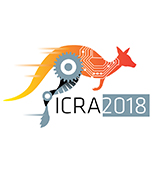
After previous successes at ICRA and IROS, the IEEE Robotics and Automation Society will again be organizing an official Access to Talent Program in conjunction with ICRA 2018. This program is targeted at job seekers and robotics companies of all sizes. It provides an outstanding opportunity for potential employers and potential employees to connect at one of the top robotics conferences in the world.
The program will be of interest to:
(1) Those Seeking Employment Opportunities
Conference attendees (primarily students) interested in robotics-related employment opportunities can upload their contact information, interests and resumé to a database that will be made available to company recruiters. Interested companies will then have the opportunity to review this database and conduct on-site interviews at ICRA. Instructions for uploading your information to the Access To Talent Program database will be included in the registration confirmation for ICRA 2018.
(2) Recruiting Companies
Companies interested in recruiting at ICRA 2018 will have access to the following resources:
- A searchable resume database of conference attendees interested in robotics-related employment.
- Space for conducting on-site interviews.
- Poster space during the exhibition to advertise the company and its available positions.
More information is available at https://icra2018.org/access-to-talent-program-at-icra2018/.
Email inquires may be directed to: accesstalent@ieee.org
Organizing Committee
Jonathan Kelly, University of Toronto, Canada
Matthew Walter, Toyota Technological Institute, USA
Henny Admoni, Carnegie Mellon University, USA
The IEEE Robotics & Automation Society (RAS) and IEEE Engineering in Medicine and Biology Society (EMBS) seek candidates for the position of Editor-in-Chief of the NEW journal IEEE Transactions on Medical Robotics and Bionics (T-MRB).
IEEE T-MRB is the new quarterly, multi-disciplinary journal jointly sponsored by IEEE RA and IEEE EMB Societies, publishing papers reporting high-quality research in the fields of robotics and of bionics applied to medicine. The IEEE T-MRB publishes articles on theoretical, methodological, experimental advancements focusing on healthcare applications of robotic and\or of bionic components and systems able to support prevention, diagnosis or treatment of human diseases.
Candidates should be dedicated volunteers with outstanding research profiles in medical robotics and bionics, strong leadership qualities, intellectual vision, organizational abilities and extensive editorial experience. The official term will start on 15 March 2018, and continue for five years, non-renewable.
The primary responsibility of the IEEE T-MRB Editor-in-Chief is to assure the journal’s quality, reputation, and scholarship. The Editor-in-Chief should be prepared to strengthen the journal’s competitive position over the next years, and develop editorial initiatives which could generate contents representative of the full spectrum of high-quality work carried out worldwide in medical robotics and bionics. The Editor-in-Chief should also assure that the journal’s activities are carried out in a fiscally responsible manner.
The Editor-in-Chief oversees the IEEE T-MRB manuscript submission and review process and is responsible for the content, quality, and timeliness of each issue of IEEE T-MRB. The Editor-in-Chief recommends to IEEE RAS and IEEE EMBS a team of editors and associate editors to help administer the peer review process, promote excellence in content, and advance editorial initiatives.
The IEEE T-MRB Editor-in-Chief will serve as ex-officio non voting member of the T-MRB Steering Committee and also reports to the IEEE RAS and IEEE EMBS through the Publications Activities Boards\Committees of the two societies.
Applications
Applications (PDF) should be submitted by e-mail to the RAS and EMBS Vice-Presidents for Publication Activities, at the following addresses: e.guglielmelli@unicampus.it and rbutera@gatech.edu.
The application must be received by 5 March 2018.
Shortlisted candidates will be interviewed (remotely) by the IEEE T-MRB Steering Committee. After the interviews, the Steering Committee will convene to determine its final recommendation and provide that recommendation to the IEEE RAS and EMBS Presidents for consideration.
The application package must include:
• a complete curriculum vitae;
• a separate description on each of the following items (max 150 words/item): Vision Statement; Editorial Experience; Summary of publishing experience in IEEE journals/magazines; IEEE Volunteer Experience; Institutional Support; Current service and administrative commitments (if any); Networking with the Community; Why does the candidate consider herself/ himself fit for this position?
• tentative list of proposed Editors and Associate Editors.
For any information and clarifications please contact k.colabaugh@ieee.org or l.wolf@ieee.org
IEEE Fellow is a distinction reserved for select IEEE members. The honor is conferred by the Board of Directors upon a person with an extraordinary record of accomplishments in any of the IEEE fields of interest.
If you know of an IEEE colleague who is a Senior Member or Life Senior Member in good standing, has completed five years of service in any grade of IEEE Membership and who has made an outstanding contribution to the electronic or electrical engineering profession, you can nominate this person in one of four categories:
- Application Engineer/Practitioner
- Educator
- Research Engineer/Scientist
- Technical Leader

Nominations for the Fellow Class of 2019 are now being accepted. To learn more about the Fellow program and the nomination process, visit the Steps to Become an IEEE Fellow page.
NOMINATION DEADLINE: 1 March 2018
Additional information about the IEEE Fellow program, and a list of RAS Fellows is available HERE.
Submit your application today!
The purpose of this award is to highlight and honor the achievements of the inventors with value creating ideas and entrepreneurs who propel those ideas into world-class products. This is a key element to the continuing success of robotics and automation today. Active infusion of innovation and entrepreneurship into technological advancement is regarded critical at this juncture to strengthen a healthy balance between research and practice as well as a healthy growth of industrial and commercial sectors in robotics and automation.

These achievements will be recognized in a specially organized IEEE/IFR Joint Forum on Innovation and Entrepreneurship in Robotics and Automation, which will be held on 20 June 2018 in conjunction with the International Symposium on Robotics in Munich, Germany. The selected finalists will have the opportunity to present their story of the genesis of a successful innovative product in robotics and automation from its very inception to the final state of commercialization in a series of plenary lectures. The ultimate winner will be chosen by an evaluation board consisting of distinguished individuals from industry and academia. A prestigious plaque will be awarded to each finalist and a US$ 2,000 prize will be awarded to the winner.
Applications should describe the original work that has been translated into a commercial success. The application must include statements regarding:
- description of the innovation/product/application
- stages of the product genesis
- novelty/uniqueness of the product
- market analysis, economic viability and pathway for commercialization
- sustained competitive advantage
- current and future impact on and relevance to industry
DON'T MISS THE DEADLINE! Applications for the IERA Award must be submitted no later than 15 March 2018.
See more here: https://ifr.org/ifr-press-releases/news/iera-award-2018-apply-now
CALL FOR APPLICATIONS
Applications should not exceed a maximum length of 5 pages. Product descriptions and public relation material will not be accepted as an application. References and links to online material are permitted.
SUBMISSION OF APPLICATIONS
Please send as PDF document (< 6 MB) no later than 15 March 2018 (any time zone) to IFR Secretariat – secretariat@ifr.org
For additional information see: Call for Applications
The IEEE Robotics and Automation Society (RAS) is seeking applications for the Member Activities Board’s Student Activities Committee (SAC). There are openings for one Chair and one or more co‐Chairs. These positions offer great opportunities to learn more about the Society, have an international impact, and expand one’s professional network. The chair will serve for two calendar years (2018–19), and the co‐chairs for a one‐year term in 2018 and renewable for a second year.

The IEEE‐RAS Student Activities Committee promotes student participation in the Society activities in co‐operation with all Society Boards, Committees and Working Groups, under the supervision of the Membership Activities Board. The mission of the committee includes working on issues of interest to student members and interacting with student members and student chapter branches. Current areas of focus include:
- Lunch with Leaders held at flagship conferences (ICRA, CASE, IROS)
- Informal social events at RAS sponsored conferences
- Educational webinars
- Membership development
- SAC Website content
- Coordination with student branch chapter chairs
- SAC column in IEEE Robotics & Automation Magazine (quarterly publication)
- IEEE RAS Facebook group management
The chairs of the RAS SAC are appointed by the RAS President from a slate of candidates approved by the Membership Activities Board. Candidates may be undergraduate or graduate students, but must be student members of the IEEE Robotics and Automation Society in good standing. The ideal candidate has strong social, professional, and communication skills, is willing to take part in ongoing activities and propose new initiatives. Past participation in SAC is requested but not required. There is no geographical preference.
The Chair of the SAC shall be an ex‐officio Administrative Committee member with a vote. The chair is expected to attend the semiannual Administrative Committee meetings, adjoin to the ICRA and IROS conferences. * Partial travel support (depending on the distance) is provided by the Society (up to $2000, for the chair, and $500 for co‐chairs). The Student Activities Chair shall also be an active member of the RAS Member Activities Board.
Currently, the SAC has several initiatives to promote active networking, interdisciplinary dialogues, and robotics education. Some initiatives require weekly SAC involvement while other activities are conference specific (currently developed around the RAS flagship conferences: IROS, ICRA, and CASE). More information about current activities can be found at the RAS webpage <http://www.ieee-ras.org/students/about-sac>
Interested applicants should be:
- Self-motivated
- Organized
- Responsive to e-mail discussions
- Able to commit 5+ hours a week to SAC material, potentially more when required for specific activities (e.g. reviewing volunteer proposals, organizing conference activities, etc.)
If you wish to be considered, please complete an Application Form by 1 March 2018 and indicate whether you are applying for the Chair or Co-Chair position, and include the following information:
1. A letter indicating applicant’s interest in serving on the SAC and relevant experience (2 pages maximum)
2. A CV or résumé (2 pages maximum)
3. A letter of support from a faculty member at your college or university (preferably a current member of IEEE and RAS).
For more information on the SAC and current activities, refer to the IEEE RAS webpage.
* Upcoming IEEE RAS Flagship Conference dates and locations are as follows:
ICRA 2018: Brisbane, Australia, 21-25 May
IROS 2018: Madrid, Spain, 1-5 October
CASE 2018: Munich, Germany, 20-24 August
ICRA 2019: Montreal, Canada, 20-24 May
IROS 2019: Macau, China, 3-8 November
CASE 2019: Vancouver, Canada, 25-28 August
CALL FOR PAPERS
IEEE Transactions on Cognitive and Developmental Systems
Special issue on: "Introspective Methods for Reliable Autonomy"
Submission deadline: 28 February 2018
AIM AND SCOPE
As humans, understanding our own limitations, failures and shortcomings is a key to improvement and development. This knowledge is crucial for altering our behaviours, e.g. to execute tasks in a more cautious way. Correspondingly, equipping robots with a set of skills that allows them to assess the quality of their sensory data, internal models, used methods etc. will greatly improve their overall performance.
The problem of introspection, directly or indirectly, relates to other research topics: planning, execution monitoring, active perception and mapping. Accordingly, an improved understanding of introspection in robotics has a direct impact on a large variety of application areas (e.g. search and rescue, intralogistics, assistive robotics).
The introspection impacts the most the following aspects of robotics system: safety, reliability and the maintenance costs.
Information on the internal state of the robot is crucial to make decisions if it is safe to execute the assigned mission considering not only the current state of the perceived environment, but also the internal state of the robot.
Continuous monitoring of the internal state of the robot and automatic assessment can also be used to enhance the maintenance process. Information about the internal state of the robot can be used to estimate the likelihood of potential failure and tailor the efforts to prevent it or to speed up the recovery or repair process by providing detailed information to a human operator or even enable self-repair.
Introspection takes an active role in the process of preventing of malfunctions of the robotic system and help to speed the repair process up. These two features have a direct impact on the running cost of a robotic system. Preventing unplanned interruptions in the robot operation and shortening the time of the planned interruptions has a direct impact on the cost of robot exploitation.
It is also important to remember that introspective information is a cornerstone of all methods aiming to robotics self-improvement. It provides information crucial to the learning and development process. In this context, it is possible to draw a parallel between human and robotic system. Assessment of the internal state is important input helping to anticipate if the planned action is feasible for the agent (either human or robot). For a complex system, it is difficult to perform such assessment relying only on the predefined set of rules and conditions.
Therefore, it is necessary to use learning algorithms which will be able to connect the preexisting internal and external conditions with the outcome of a planned action. In such a configuration, a failure became a crucial element of a learning process of an autonomous system.
Finally, it is important to emphasis that introspection is a topic which spans across multiple fields. The introspection is originally a human ability. It is recent years when the idea of introspection is also becoming present in the field of robotics.
Therefore, to obtain a complete picture of the problem of introspection in autonomous systems it is important to have a closer look also at psychological aspect of introspection. Moreover, the impact of introspection in the context of the cognitive science cannot be overlooked.
The primary topic of this issue is to present work on:
How to assess the quality of internal models, methods, sensory data and the hardware used by robots and how to alter their behaviour using this information?
The aim of this special issue is fourfold:
* Survey the state of the art in the field.
* Define open research questions in the field.
* Provide a venue to present the recent developments in the field of introspection.
* Present system papers showing how introspection is integrated and affects the performance of a system.
THEMES
This special issue is addressed to researchers interested in the development of introspective methods for robust autonomy
across different research areas. We expect to receive submissions relevant for following research fields, but to name a few: Long-term autonomy, safe operation of robots under uncertainty, performance awareness, reliable-aware operation,
cooperative robotics, cognitive and learning robots, developmental robotics, Human-Robot Interaction. Introspection
is broad term covering a set of topics. Topics relevant to this special issue includes, but are not limited to:
* Internal assessment (Map quality assessment, Perception quality assessment, Classification quality assessment)
* Analysis (Failure analysis, Execution monitoring, Meta-reasoning)
* Introspection-related actions (Failure recovery, Reconfigurable robots, Planning with uncertainty)
IMPORTANT DATES
28 February 2018 - Deadline for manuscript submissions.
15 June 2018 - Notification of authors
15 July 2018 - Deadline for submission of revised manuscripts
15 September 2018 - Final decisions
SUBMISSION
Manuscripts should be prepared according to the “Information for Authors” of the journal found HERE and
submissions should be made through the IEEE TCDS Manuscript centre at https://mc.manuscriptcentral.com/tcds-ieee selecting the category “SI: Introspective Methods for Reliable Autonomy”.
AIMS AND SCOPE OF THE JOURNAL
The IEEE Transactions on Cognitive and Developmental Systems (TCDS) focuses on advances in the study of development and cognition in natural (humans, animals) and artificial (robots, agents) systems. It welcomes contributions from multiple related disciplines including cognitive systems, cognitive robotics, developmental and epigenetic robotics, autonomous and evolutionary robotics, social structures, multi-agent and artificial life systems, computational neuroscience, and developmental psychology. Articles on theoretical, computational, application-oriented, and experimental studies
as well as reviews in these areas are considered.
EDITOR-IN-CHIEF
Yaochu Jin
Department of Computer Science, University of Surrey
Surrey, United Kingdom
GUEST EDITORS
Tomasz Piotr Kucner
Centre for Applied Autonomous Sensor Systems, Örebro University
Örebro, Sweden
tomasz.kucner@oru.se
Sören Schwertfeger
School of Information Science and Technology, ShanghaiTech University
Shanghai, China
soerensch@shanghaitech.edu.cn
Martin Magnusson
Centre for Applied Autonomous Sensor Systems, Örebro University
Örebro, Sweden
martin.magnusson@oru.se
Achim J. Lilienthal
Centre for Applied Autonomous Sensor Systems, Örebro University
Örebro, Sweden
achim.lilienthal@oru.se
Rudolph Triebel
Institute of Robotics and Mechatronics, German Aerospace Center
Oberpfaffenhofen-Weßling, Germany
rudolph.triebel@dlr.de
14th IEEE International Conference on Automation Science and Engineering
IEEE CASE 2018, sponsored by the IEEE Robotics and Automation Society (RAS), will be held in Munich, Germany, 20-24 August 2018. It is the flagship automation conference of IEEE RAS and constitutes the primary forum for cross-industry and multidisciplinary research in automation. Its goal is to provide a broad coverage and dissemination of foundational research in automation among researchers, academics, and practitioners. This edition of the conference will be under the motto Knowledge-Based Automation.
To allow customized products and shortened time to market on the one hand, and longetivity and evolvability of networked automated production systems on the other hand, we need to learn from engineering and operation of systems. CASE 2018 will focus on knowledge as a key factor for future automation engineering and science.

Conference Tracks
- Cyber physical production systems and industry 4.0
- Cloud computing for automation
- Big data and data mining
- Automation and control
- Domain specific software & systems engineering
- Mechatronics
- Discrete event systems
- Model evolution (systems and software)
- Human in the loop (in engineering and operation)
- Building automation
Important Dates
15 January: Open special session/ tutorial/workshop proposal submission due
29 January: Open special session/tutorial/ workshop acceptance notification
15 February: Special session proposal submission due
15 February: Deadline for RA-L submission
1 March: Deadline for Regular/Special session submissions
1 April: Work in Progress/Industrial paper submission due
15 May: Paper acceptance notification
15 June: Final paper submission due
For more information see: http://case2018.org/
The IEEE Robotics & Automation Society recognizes and congratulates the following individuals for their outstanding accomplishments and service to RAS and the robotics and automation community. They will be honored during an award luncheon to be held during the IEEE International Conference on Robotics & Automation (ICRA 2018) on 24 May 2018 at the Brisbane Convention & Exhibition Venue, Brisbane, Australia. Please join us in congratulating these outstanding recipients!
RAS Pioneer Award
Vijay Kumar - University of Pennsylvania (PA), United States
"For pioneering work on the theory and practice of cooperative robotics and networked unmanned aerial vehicles"
Daniela Rus - Massachusetts Institute of Technology (MIT), United States
"For pioneering work in the science and design of distributed and self-reconfiguring robotic systems"
RAS George Saridis Leadership Award in Robotics and Automation
Antonio Bicchi - University of Pisa and IIT Istituto Italiano di Tecnologia, Italy
"For his leadership in the robotics and automation community through research innovation, technology transfer, education and professional development"
Bill Hamel - University of Tennessee (TN), United States
"For continued leadership that has significantly contributed to the growth and development of robotics in hazardous environments and to the IEEE Robotics and Automation Society"
IEEE RAS Distinguished Service Award
Torsten Kröger - Karlsruhe Institute of Technology (KIT), Germany
"For his broad and creative contributions to conference, technical, and industrial activities of RAS"
Frank C. Park - Seoul National University, South Korea
"For his dedication and notable contributions to RAS publications and governance"
Early Academic Career Award in Robotics and Automation
Jens Kober - Delft University of Technology (TU Delft), The Netherlands
"For fundamental contributions to learning and application of versatile motor skills in robotics"
Julie Shah - Massachusetts Institute of Technology (MIT), United States
"For contributions to human-robot collaboration and transition of results to real world applications"
Early Government or Industry Career Award in Robotics and Automation
Alexander Kernbaum - SRI International (CA), United States
"For his work on robotic actuation and the invention of new transmission mechanisms"
RAS Most Active Technical Committee Award
Technical Committee on Multi-Robot Systems
Co-Chairs: Nora Ayanian, Robert Fitch, Antonio Franchi, Lorenzo Sabattini
RAS Chapter of the Year Award
IEEE Connecticut Robotics and Automation Chapter - United States
Co-Chairs: Biao Zhang, Haoyu Wang
Heartfelt congratulations to Matthew T. Mason, selected recipient of the prestigious 2018 IEEE Robotics and Automation Award for "Scientific and educational contributions to the mechanics of manipulation enabling real-world robot autonomy, and for leadership in robotics." He will receive this award during the 2018 IEEE/RSJ International Conference on Intelligent Robots and Systems (IROS) in Madrid, Spain on 1-5 October 2018.
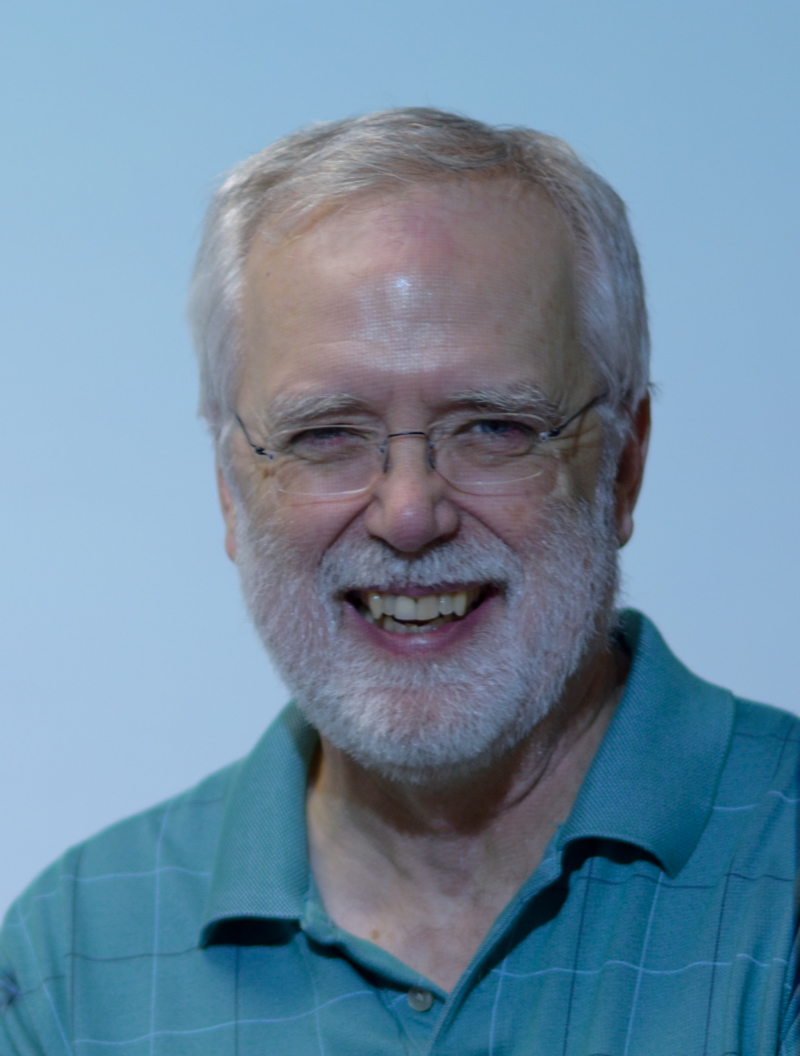
Matthew T. Mason’s contributions to advancing the mechanics of grasping and manipulation are essential to enabling robots to physically interact with the world. A proponent of minimalism in robotic manipulation, his innovative thinking provides simple solutions that allow robots to perform sophisticated tasks, such as parts feeders used for automatic assembly and packaging. He established the geometrical and mechanical foundations for robotic manipulation, and he pioneered pushing and planar sliding as important processes in manipulation. As founder of Carnegie Mellon University’s Manipulation Lab, Mason supervised development of the origami-folding robot, desktop mobile manipulators, scale-invariant grasping, throwing, striking, regrasp, and the use of simple single-actuator. He was also a key architect of the Robotics Roadmap that led to the National Robotics Initiative.
An IEEE Fellow, Mason is a professor of computer science and robotics at Carnegie Mellon University, Pittsburgh, PA, USA.
The IEEE Robotics and Automation Award was established in 2002 by the IEEE Board of Directors, and is presented for contributions in the field of robotics and automation. It includes but is not limited to: manufacturing automation; robotics and automation in unstructured environments; sensor design; integration and fusion; robot design; modeling; planning and control; methodologies for robotics and automation, and the quality of the nomination. This Award is sponsored by the IEEE Robotics & Automation Society.
Past Recipients can be found HERE
Overview
Growth in world population, increasing urbanization and changing consumption habits means demand for food production is predicted to increase dramatically over the coming decades. This increased demand in food production must be achieved despite challenges such as climate change, a limited supply of new arable land and difficulties in sourcing skilled farm labour. Robotics and automation are likely to play a key role in meeting these challenges over the coming decades by helping to improve farm productivity. A key component of these future autonomous agricultural systems is the development of robust and accurate perception systems for perceiving the agricultural environment. Recently, the development of these agricultural perception systems in both research and industry has been spurred on by the emergence of new and increasingly cost-effective sensing modalities such as multi- and hyperspectral imaging, high resolution cameras, LiDAR, radar and centimetre precision GPS. These sensing modalities have been complemented by advances in the size and affordability of computing power and increasingly capable algorithms. This special issue is supported by IEEE RAS Agricultural Robotics and Automation Technical Committee (TC-AgRa) and IEEE-RAS Technical Committee on Mobile Manipulation (TCMM)
Topical Area
This special issue on RA-L will focus on current advances in the area of autonomous farming. Papers are solicited on all areas directly related to these topics, including but not limited to:
- Robots for pruning, thinning, harvesting, mowing, spraying, and weed removal
- Aerial and ground robotic platforms for soil/crop monitoring, prediction, and decision making
- Aerial Robotics for Environmental and Agricultural applications
- Sensing and yield-estimation in precision agriculture
- Fruit and flower detection and recognition
- Approaches to cost-effective sensing for day/night continuous operation
- Long-term autonomy and navigation in unstructured farming environments
- Manipulators and platforms for soil preparation, seeding, crop protection, and harvesting
- Adaptive sampling and informative data collection
- Adaptive technologies that manage plants, soil or animals according to as-sensed status
- Theoretical and empirical decision-oriented data-analysis techniques including machine learning
Timeline
Special Issue Submission Opens: 17 February 2018
Special Issue Submission Deadline: 24 February 2018 (same as RAL/IROS)
First Decision Communicated to Authors: 21 May 2018
Final Decision Communicated to Authors: 25 July 2018
Accepted RAL Papers appear on IEEEXplore: 23 August 2018
Conference Option
This Special Issue will be associated with the 2018 IEEE/RSJ International Conference on Intelligent Robots and Systems (IROS), 1-5 October 2018 in Madrid,Spain and accepted articles will be presented at the conference. Authors of submissions commit that, if accepted by the IROS Program Committee, they will present the work at IROS.
How to submit
Authors will be available to submit your papers to our special issue via RAS paperplaza (RA-L submission system). There will be a menu on the submission system for our SI, Precision Agricultural Robotics and Autonomous Farming Technologies. But the submission system will be opened on 17 February 2018, and will be closed on 24 February 2018. So please keep in mind the submission is only available from 17 February 2018 for one week.
Website
Advisory Committee
Bruce MacDonald (University of Auckland, New Zealand)
Roland Siegwart (ETH Zurich, Switzerland)
Peter Corke (Queensland University of Technology, Australia)
Organizers/Contact
Ho Seok Ahn, corresponding organizer - hs.ahn@auckland.ac.nz, University of Auckland, New Zealand
Inkyu Sa - inkyu.sa@mavt.ethz.ch, ETH Zurich, Switzerland
Feras Dayoub - feras.dayoub@qut.edu.au, Queensland University of Technology, Australia
The Basel Peace Forum 2018 inspires new and unconventional ideas for peacebuilding. To achieve this, carefully selected leading personalities and decision-makers from business, diplomacy, academia, and civil society are invited. The Basel Peace Forum will take place on 14 January 2018 at the Museum of Art (Kunstmuseum), and on 15 January 2018 at the Congress Center in Basel, Switzerland.

Raj Madhavan will be a Guest Speaker for one of the Innovation Forums.
Raj is Founder & CEO, Humanitarian Robotics Technologies, LLC and works at the intersection of robotics & automation and technology-policy.
A ROBOT FOR PEACE? THE POTENTIAL OF ARTIFICIAL INTELLIGENCE
Humanity expects a lot from the development of full artificial intelligence: support for the ending of wars, for example. But at the same time, many fear a loss of control and unintended negative consequences. This forum gathers together experienced technologists and scientists to analyze the role of artificial intelligence in changing warfare and preventing violent conflicts. Furthermore, it explores the impact of virtual platforms on building trust through social and commercial interactions in countries emerging from conflicts.
For more information see: http://basel-peace.org/about-the-forum/



